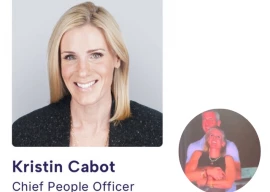
As the craft in Pakistan is only a decade-old in terms of its real impact, no scholarly studies are available to assess its weaknesses and strengths. Many questions, meanwhile, remain unanswered or their answers misunderstood, and one wishes that scholarship on the subject is encouraged to help us understand why things are the way they are. The purpose of this piece is to bring some oft-ignored facts to the fore.
The phenomenal rise of TV anchors started with the advent of private news channels against the backdrop of a failing entertainment industry. Only a few years prior to the launch of the first private news channel, Pakistan Television abolished its in-house production facility and outsourced the laborious task of content generation. An audience long deprived of televised serious independent debate on politics fell in love with the newly-introduced political talk shows and some even started expecting quality entertainment from them. But political talk shows will ever be only political talk shows and it is wrong to think that they can compensate for the comedy, drama, tragedy and adrenaline pumping suspense of the entertainment industry.
Another sad background fact is that before the advent of private television channels in Pakistan, the only exposure the masses had to such a genre was through the limited channels available on the dish antenna. Since the first affordable news channel for the average urban household was BBC World, its most noteworthy show “Hard Talk”, with the confrontational attitude of Tim Sebastian, became the archetypal benchmark. While there are countless formats available in the field the world over, the best among them being non-confrontationist, the audiences and the anchors growing in this era have been conditioned to this format.
With further experiments came the drama of quarrelling guests and the sensation it created. Now, in the eye of the marketing departments of these channels, a good anchor is one who can shout a lot or make people fight on-air. And with a sophisticated rating system in place, their assessment is hard to challenge. Of course, it is an unfortunate vicious cycle and an engine of mediocrity where innovative ideas are often lost.
When innovation came, it arrived in the wrong shape. You were not to expect Oprah Winfrey from our channels but the introduction of comedians, actors and other representatives of the entertainment industry in otherwise serious political discussions.
As things stand today, talk shows and their anchors are perfect specimens of Theodor W Adorno’s culture industry. It is imperative that, instead of expecting this Herculean task of breaking the mould only from a TV anchor — who, in any case, is a product of the society we breath in — all stakeholders work together to bring change. After all, it is quite unfair to expect comedy, drama, tragedy, thrill and then constructive discussion from the same anchor.
Published in The Express Tribune, May 24th, 2012.














COMMENTS
Comments are moderated and generally will be posted if they are on-topic and not abusive.
For more information, please see our Comments FAQ